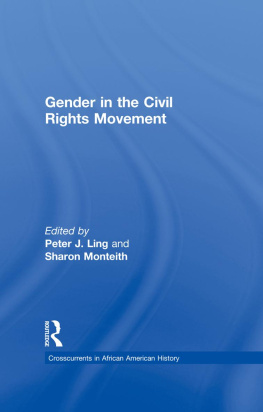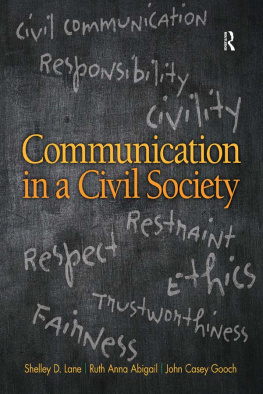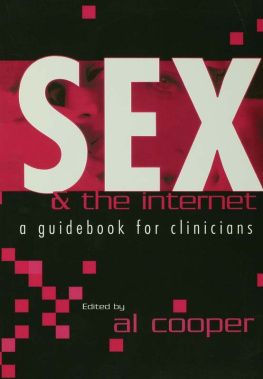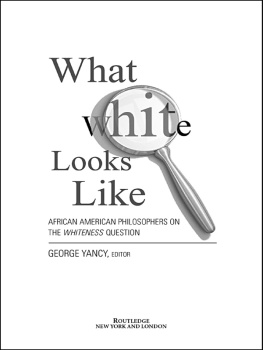
STUDIES IN AFRICAN AMERICAN HISTORY AND CULTURE
Edited By
Graham Russell Hodges
Colgate University
A ROUTLEDGE SERIES
STUDIES IN AFRICAN AMERICAN HISTORY AND CULTURE
GRAHAM RUSSELL HODGES, General Editor
AFRICAN AMERICANS IN THE RECONSTRUCTION ERA
Chunchang Gao
FREDERICK DOUGLASS AND THE BLACK LIBERATION MOVEMENT
The North Star of American Blacks
Wu Jin-Ping
GLORIA NAYLOR'S BLUES AESTHETIC
Chekita T. Hall
UPLIFTING THE WOMEN AND THE RACE
The Lives, Educational Philosophies and Social Activism of Anna Julia Cooper and Nannie Helen Burroughs
Karen Johnson
GRASS ROOTS REFORM IN THE BURNED-OVER DISTRICT OF UPSTATE NEW YORK
Religion, Abolitionism, and Democracy
Judith Wellman
PROPHETS OF RAGE
The Black Freedom Struggle in San Francisco, 1945-1969
Daniel E. Crowe
ERADICATING THIS EVIL
Women in the American AntiLynching Movement, 1892-1940
Mary Jane Brown
PROTEST AND PROGRESS
New York's First Black Episcopal Church Fights Racism
John Hewitt
AN UNDERGROWTH OF FOLLY
Public Order, Race Anxity, and the 1903 Evansville, Indiana Riot
Brian Butler
W.E.B. DU BOIS
The Quest for the Abolition of the Color Line
Zhang Juguo
JESUIT SLAVEHOLDING IN MARYLAND, 1717-1838
Thomas Murphy, S.J.
AFRICANS AND INDIANS
An Afrocentric Analysis of Contacts between Africans and American Indians in Colonial Virginia
Barbara A. Faggins
THE ORIGINS OF THE AFRICAN AMERICAN CIVIL RIGHTS MOVEMENT, 1865-1956
Aimin Zhang
Routledge
Taylor & Francis Group
270 Madison Avenue
New York, NY 10016
Routledge
Taylor & Francis Group
2 Park Square
Milton Park, Abingdon
Oxon OX14 4RN
Routledge is an imprint of the Taylor & Francis Group.
Copyright 2002 by Routledge
All rights reserved. No part of this book may be reprinted or reproduced or utilized in any form or by any electronic, mechanical, or other means, now known or hereafter invented, including photcopying and recording, or in any information storage or retrieval system, without permission in writing from the publisher.
Library of Congress Cataloging-in-Publication Data
Aimin, Zhang, 1971-
The origins of African American civil rights movement, 1865-1956 /Zhang Aimin
p. cm. (Studies in African American history and culture)
Includes bobliogrpahical references and index.
ISBN 0-415-93382-X
1. African AmericansCivil rightsHistory19th century. 2. African AmericansCivil rightsHistory20th century. 3. Civil rights movementsUnited StatesHistory19th century. 4. Civil rights movementsUnited StatesHistory20th century. 5. United StatesRace relations. I. Title. II. Series.
E185.61 .A425 2002
323.1'196073dc21
2002021955
For Professor Zhang Youlun
My parents and
My wife Gu Na
Contents
Chapter One
THE LEGACY OF THE CIVIL WAR |
Chapter Two
BLACK GREAT MIGRATIONS |
Chapter Three
CRISIS, OPPORTUNITY AND THE GROWTH OF AFRICAN AMERICANS' POLITICAL CONSCIOUSNESS |
Chapter Four
THE EXPANSION OF SOCIAL BASIS |
Chapter Five
EVE OF THE AFRICAN AMERICAN CIVIL RIGHTS MOVEMENT |
Chapter Six
AMERICAN FEDERAL SUPREME COURT DECISIONS ON CIVIL RIGHTS CASES |
The "Origins of the African American Civil Rights Movement" would never have come up, either as a Ph. D. dissertation or as this present book before you, without the generous encouragement, guidance and help of Professor Zhang Youlun of Nankai University, my Ph. D. program tutor. I'm more grateful to Professors Yang Shengmao, Lu Jingsheng, Li Jianming and Yang Lingxia of Nankai University, Professor Samuel C. Pearson of Southern Illinois University, Professor Wang Xi of Indiana University of Pennsylvania and Professor Xu Guoqi of Harvard University. The present volume has benefited enormously from conversations with and materials provided by them. I'd like to pay special thanks to Professor Wang Xu of Ximen University, Professor Shi Yinhong of China People's University, Professor Yu Zhisen of East China Normal University, Professor Liang Maoxin of Northeast Normal University, Professor Dai Chaowu of Nanjing International Relations College, all of whom took trouble to read and comment on the dissertation. I'd like to give my thanks to Professor Wang Deren of Foreign Affairs College in Beijing and Professor Zhang Hongyi of Beijing Normal University, who have given me very valuable suggestions in the dissertation defense.
I'm deeply grateful to Professor Paul William, Dr. Zhai Fan, Dr. Xu Xiaoxu and many other of my friends and colleagues, who have helped a lot in writing the dissertation and translating it into English.
I'd like to give my special thanks to Mr. Graham R. Hodges, who has focused his attention on my translation work throughout the process and provided me with a lot of invaluable advice on how to do better the work. I'm grateful to Ms. Farideh Kamali and other staff members of the series of books for having patience with me and their energy and time put into my book.
Last but most important, here I'd like to say to my wife, "Thank you!" Without her support, I would not finish the book in time.
Zhang Aimin
Department of History
Anshan Normal University
Anshan, Liaoning
China
January 2002
As a long and large-scale social and political movement, the African American civil rights movement occupies a very important position in American history. It may be said that the civil rights movement was another significant movement in pursuit of national liberation following President Lincoln's emancipation of the Negroes. This was a spontaneous struggle participated in by African Americans and other minorities seeking to end segregation and other forms of discrimination and to secure rights equal to those enjoyed by whites. The depth and width of its influence extends far beyond those of any other movement in American history. Research on this subject not only provides a better understanding of the nature and problems of American democratic system. It also contributes to an understanding of the roles and limitations of social movements in the perfection of the democratic system.
In discussing the issue of the African American civil rights movement, we will inevitably meet with such fundamental concepts as "civil rights," "civil rights struggle" and "civil rights movement." The concepts as used in some of our domestic monographs are very sweeping and somewhat ambiguous. An early discussion of the definitions and of these historical concepts is in order.
In 1991, Professor Peter G. Rainstorm of the University of Michigan defined "civil rights" in The American Law Dictionary as active actions taken by governments for the purpose of protecting the citizens from being abused by bureaucratic and private illegal actions. He also made a clear distinction between "civil rights" and "civil liberties," pointing out that civil liberties are prohibitions on certain government actions, providing the range of individual activities in which the government must not interfere, while "civil rights" are the initiatives made by the government to implement its commitments in protecting the citizens' fundamental rights of "life, liberty and property." "Civil liberties" refers to the rights enumerated in the Constitution and the Bill of Rights.








